
The Best Apple Wireless Chargers for 2023
If you're an Apple fan, chances are you have a drawer filled with white wires
2023-09-06 02:22

Android Evolution: Google Tweaks Logo, Announces AI-Influenced Feature Drop
Recreating Google’s Android logo now requires two new ingredients: the Shift key and some shading.
2023-09-06 01:59
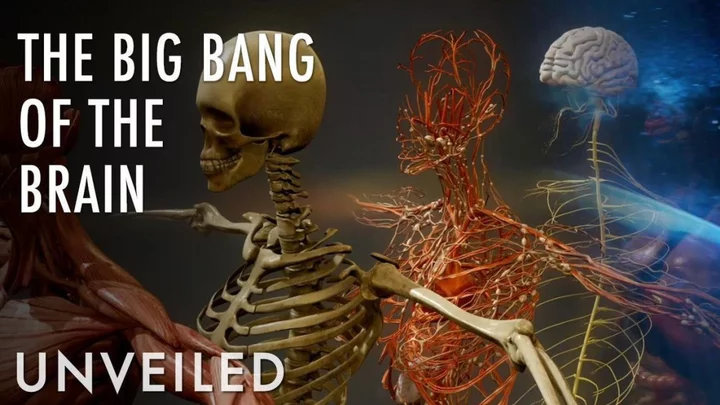
Curly hair may have been critical to human evolution
Curly hair may have been absolutely critical to humans evolving millions of years ago, scientists have discovered. In fact, having curly hair could have been the key reason as to why humans developed, grew taller and came to have larger brains. It’s all to do with regulating body temperature, according to a new study by researchers at Penn State University. Given that hair can help to protect the head from the sun’s rays, it’s thought that thicker, curlier hair types could have been key to human life progressing in Equatorial Africa. Scientists recreated the kinds of conditions that early humans would have experienced, using wigs featuring different hair types on models. They found that curls were most effective in keeping the models cool in an environment measuring 86 degrees Fahrenheit (30 degrees Celsius) and 60 per cent humidity. Tina Lasisi is the study's lead author. She spoke to Newsweek about the findings and said: "We hypothesized that tightly curled scalp hair would provide some benefits, but the extent of these benefits was uncertain. "Previous studies on mammalian coats have shown that hair can limit the amount of sunlight reaching the skin, but we were particularly surprised by the significant reduction in solar heat radiation impact provided by tightly coiled hair.” The reduction in heat caused by tight curls could have led to the development of larger brains. "Once humans developed large brains, they could employ other behavioral and social strategies to cope with heat, potentially diminishing the relative advantage of curly hair," she said. "This could have led to a diverse distribution of hair textures worldwide. Furthermore, since straight hair better retains heat, populations in colder environments may have experienced selective pressure for straight hair." She added: "Future research should aim to answer these questions by incorporating our data into mathematical models of human physiology or conducting experiments with human subjects who have different hair textures to examine the impact on their thermal regulation.” Sign up for our free Indy100 weekly newsletter Have your say in our news democracy. Click the upvote icon at the top of the page to help raise this article through the indy100 rankings
2023-09-06 00:58
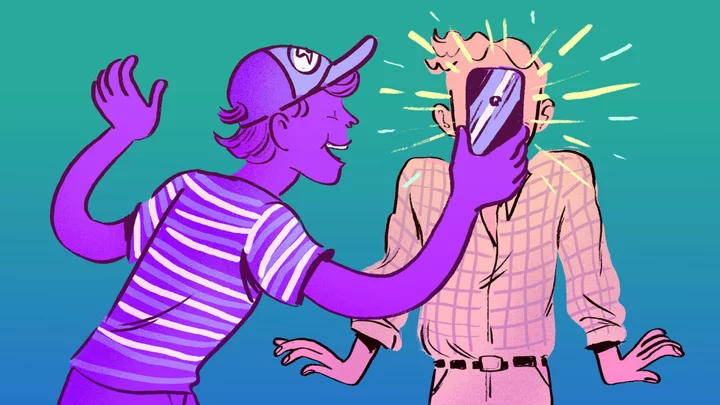
How to Record the Screen on Your Android Phone
If you need to record the screen on your computer, Windows has the Game Bar
2023-09-05 22:59
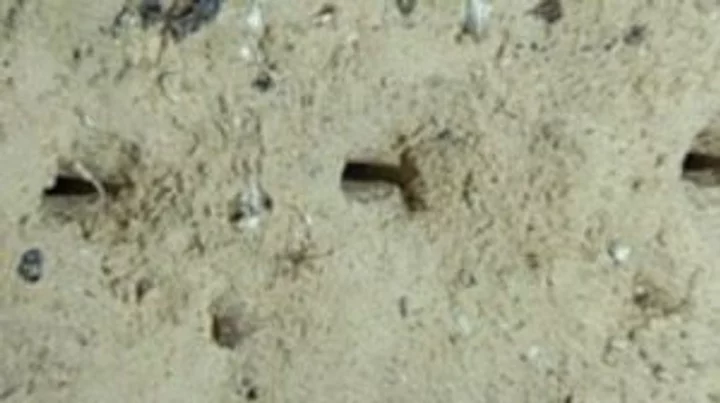
Mysterious 'golden egg' discovered at the bottom of the ocean leaves scientists baffled
A mysterious golden object has been found at the bottom of the ocean by scientists exploring the Pacific Ocean and it has left them baffled. The discovery was made on 30 August when a team of experts from the National Oceanic and Atmospheric Administration (NOAA) were taking a closer look at an underwater volcano 250 miles off the coast of Alaska. Experts, and members of the public viewing the live stream, caught a glimpse of the unusual gold orb two miles beneath the surface lodged into the side of the volcano and were left puzzled over what it could be. It was found thanks to the NOAA’s Seascape Alaska 5 expedition that is currently mapping the seafloor of the Gulf of Alaska. Those who made the discovery at the foot of the volcano also noted there was a mysterious hole in the side of the orb, with one researcher suggesting on the live stream that “Something tried to get in...or to get out”. Scientists bantered back and forth about what the egg-like object could be and ultimately decided to take a sample that could be analysed. The texture of the orb was not as they had expected and was more of a silky, delicate consistency. An arm from the robotic vehicle was used to suction the orb in order for scientists to determine its origins with laboratory testing. The NOAA Seascape Alaska 5 expedition is due to end in mid-September and aims to fill the gaps that experts have about the sea beds off the USA’s west coast. It began on 24 August in Kodiak, Alaska and will come to an end in Seward, Alaska on 16 September. Sign up to our free Indy100 weekly newsletter Have your say in our news democracy. Click the upvote icon at the top of the page to help raise this article through the indy100 rankings.
2023-09-05 22:52

Scientists find that vitamins might be having an adverse impact on your health
Growing up, people are generally taught that taking vitamins is good for you, with many people taking supplements to boost their intake. However, results of a new study suggest that taking vitamins could actually have a negative impact on health as they may help tumours to grow. New research suggests that taking additional vitamins and minerals, including common antioxidants such as vitamins A and C, and selenium and zinc, could help the blood vessels in tumours to grow. The study was conducted by scientists at the Karolinska Institutet in Sweden who published their findings in the Journal of Clinical Investigation. The results were somewhat of a surprise to experts, who believed anti-oxidants to be protective of the body. In their research, they found that vitamin C and other antioxidants actually stimulated the formation of new blood vessels in lung cancer tumours. Martin Bergö, who is a professor at the Department of Biosciences and Nutrition, said: “We’ve found that antioxidants activate a mechanism that causes cancer tumours to form new blood vessels, which is surprising since it was previously thought that antioxidants have a protective effect. “The new blood vessels nourish the tumours and can help them grow and spread.” Antioxidants, in normal amounts, neutralise free oxygen radicals that damage the body, so are beneficial. But, scientists found that high doses of antioxidants can activate a protein called BACH1 which begins the formation of new blood vessels, allowing harmful tumours to grow. Bergö explained: “There’s no need to fear antioxidants in normal food but most people don’t need additional amounts of them. “In fact, it can be harmful for cancer patients and people with an elevated cancer risk.” Ting Wang, the study’s lead author, said: “Many clinical trials have evaluated the efficacy of angiogenesis inhibitors, but the results have not been as successful as anticipated. “Our study opens the door to more effective ways of preventing angiogenesis in tumours; for example, patients whose tumours exhibit high levels of BACH1 might benefit more from anti-angiogenesis therapy than patients with low BACH1 levels.” Sign up to our free Indy100 weekly newsletter Have your say in our news democracy. Click the upvote icon at the top of the page to help raise this article through the indy100 rankings.
2023-09-05 20:22

This hidden iPhone emergency setting could potentially save your life
A podcast host is going viral after revealing a little-known iPhone hack that could potentially save your life. Morgan Absher, from Two Hot Takes, demonstrated by how heading into your settings and altering the 'Emergency SOS' buttons, you can easily dial 999 should you need to. "I’m constantly scared about getting kidnapped. Getting kidnapped is my biggest fear", she explains of how she learnt the hack. By turning it on, users can choose to either press and hold their volume and power buttons simultaneously to call the emergency services, or press the power button five times for the same result. Sign up to our free Indy100 weekly newsletter
2023-09-05 18:45

Gamers are boycotting Starfield because players can add pronouns
A handful of gamers have erupted across social media due to the option to select pronouns for characters in the game Starfield. The role-playing game (RPG) allows players to customise their characters, including deciding which pronouns they have. The feature was discovered after the game went live on Friday 1 September for those who had pre-ordered. Bethesda, who have previously made games such as The Elder Scrolls V: Skyrim and Fallout 4, allowed Starfield players to select they/them pronouns for non-binary characters if they so pleased. But a small number of notable gaming streamers seemed extremely upset over the decision. They accused video game publishes of going “woke”. Streamer Herschel ‘Guy’ Beahm IV, known by his online alias Dr Disrespect, was outraged both at the pronoun option and the head of publishing at Bethesda, Pete Hines, having his pronouns in his Twitter/X bio, saying “it all makes sense now. Beahm also shared with his viewers that he had tried to work with Bethesda prior to the release of Starfield, but was told no due to “past controversies.” Another streamer known online as 'Heel vs Babyface', revealed his sheer lack of imagination when he screamed at his camera for two-and-a-half minutes claiming the choice of pronouns meant he was being “dragged out” of the immersive experience of the game. “Do you want to get immersed in our world? Yeah well guess what, f**king pronouns,” he screamed. “F**king gender ambiguity. F**king current-day California s**t, because that’s all we f**king know.” As expected, many mocked those who were upset over a two-second feature in a video game. One user called Heel vs Babyface “pathetic”: Others told him to “grow up”: Outside of streamers who are unable to comprehend an experience outside of their own, Starfield has received less than favourable reviews from critics for valid reasons such as poor performance and calling the title “disjointed”. Sign up to our free Indy100 weekly newsletter Have your say in our news democracy. Click the upvote icon at the top of the page to help raise this article through the indy100 rankings.
2023-09-04 23:17
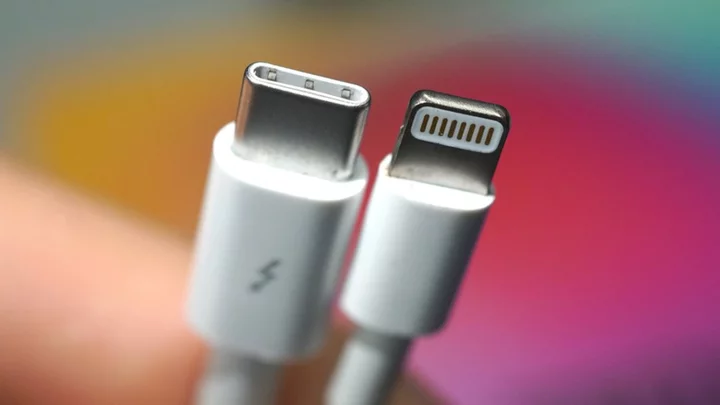
New iPhone, new charger: Apple bends to EU rules
A European Union law will require portable devices to have a common charger by 2024.
2023-09-04 22:16
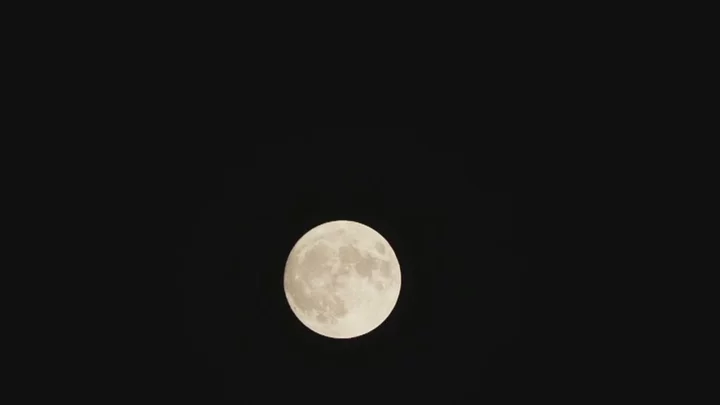
The Moon is slowly drifting away from Earth and its beginning to impact us
The Moon is a constant in the night sky, but all is not actually as it seems. It turns out that scientists have discovered the Moon is drifting away from Earth, and it’s changing everything we thought we knew about our planet’s relationship with its only natural satellite. It’s also having a very real impact on the length of days on our planet – albeit at an incredibly slow rate. By moving away from Earth over the course of millions of years, the Moon is simultaneously making the length of the average day longer. A study by a team at the University of Wisconsin-Madison focused on rock from a formation aged at 90 million years. By doing so, they were able to analyse the Earth’s interactions with the Moon 1.4 billion years ago. It turns out that the Moon is moving away from Earth at us at 3.82 centimetres a year. That means that, eventually, it’ll result in Earth days lasting 25 hours in 200 million years time. Stephen Meyers, who is a professor of geoscience at the University of Wisconsin-Madison, said: “As the moon moves away, the Earth is like a spinning figure skater who slows down as they stretch their arms out.” He added: “One of our ambitions was to use astrochronology to tell time in the most distant past, to develop very ancient geological time scales. “We want to be able to study rocks that are billions of years old in a way that is comparable to how we study modern geologic processes.” It’s not the only story that changes our understanding of the Moon recently. Scientists have also just uncovered billions of years’ worth of secrets buried beneath the surface of the moon – all thanks to China’s space programme, which has uncovered hidden structures which can help us start to piece together the Moon’s past. Sign up for our free Indy100 weekly newsletter Have your say in our news democracy. Click the upvote icon at the top of the page to help raise this article through the indy100 rankings
2023-09-04 20:29
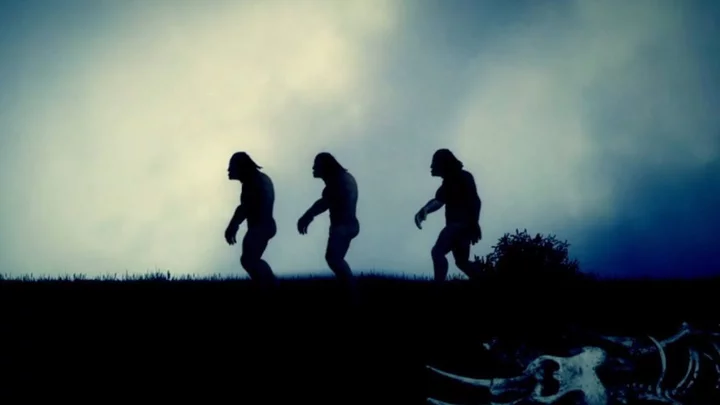
The terrifying time our early ancestors almost became extinct
New research has shown that our early ancestors almost went extinct some 900,000 years ago. Using a new method called FitCoal (fast infinitesimal time coalescent process), researchers analysed the likelihood of present-day genome sequences to project current human genomic variation backwards in time. They applied the technique to the genomes of 3,154 people from 10 African and 40 non-African populations, and found a massive crash in genetic diversity during the transition between the early and middle Pleistocene. “Results showed that human ancestors went through a severe population bottleneck with about 1,280 breeding individuals between around 930,000 and 813,000 years ago,” the study authors wrote in the journal Science. “The bottleneck lasted for about 117,000 years and brought human ancestors close to extinction,” they say. Wiping out roughly 98.7 percent of the ancestral human population, “the bottleneck could also have increased the inbreeding level of our ancestors, thus contributing to the 65.85 percent loss in present-day human genetic diversity,” explained the researchers. This probably happened because of changes in the global climate as short-term glaciations became longer-lasting, triggering a drop in ocean temperatures, prolonged drought, and the loss of large numbers of species that humans might have relied on for food. Then, around 813,000 years ago, populations finally recovered, with a 20-fold increase in numbers because of fire combined with the return of warmer temperatures, researchers reckon. What a near miss, eh? Sign up to our free Indy100 weekly newsletter Have your say in our news democracy. Click the upvote icon at the top of the page to help raise this article through the indy100 rankings.
2023-09-03 19:22

There’s an exact number of people required to colonise Mars – and it may surprise you
When he’s not making radical, controversial changes to Twitter/X, Elon Musk is eyeing up plans to colonise Mars in the coming years with his company SpaceX – and now a team of researchers at the Virginia-based George Mason University claims it has found out the minimum number of people needed to successfully takeover the red planet. In the study – the results of which were published to the research platform Arxiv in August - the academics established a model to find out the ‘initial population size’ required on Mars to produce a “stable colony size”. They ran the model five times for 28 Earth years, and increased the population by 10 people each time - from 10 to 170 individuals. “Given that there are four critical tasks that are needed continuously (air, water, food production and waste removal) in addition to handling disasters, and two skills needed for each task, we chose a population size of 10 as the minimum needed for a ‘stable’ colony size. “The population is allowed to dip below 10 as long as it bounces back within 1.5 years, or the amount of time between Earth resupply shuttles.” The test found all initial population sizes over 50 were able to sustain a population of at least 10 people across the time period, and that the bare minimum number to meet that criteria is at least 22 people. There you go, Elon. You’re welcome. It’s certainly a decrease in the minimum number previously suspected by French researcher Jean-Marc Salotti in June 2020 – that was the rather astronomical figure (sorry) of at least 110 people. And the Virginia researchers didn’t stop there, either, as they also took a look at the personality types best placed to handle the highly stressful environment that is living on a completely different planet. There’s four: “agreeables”: low competitiveness and aggressiveness, and not fixated on “stringent routine “socials”: medium competitiveness, extroverted, require social interaction but not fixated on stringent routines “reactives”: medium competitiveness and fixed on stringent routines “neurotics”: high competitiveness, highly aggressive and a “challenged ability to adapt to boredom or a change in routine” Perhaps unsurprisingly, the “agreeables” came out on top. The researchers added: “In all runs, the Agreeable personality type was the only one to survive the full duration of model runs. This is likely because it has the highest coping capability.” Their results found that while the “neurotic” was “most likely to fail”, and both “reactives” and “socials” fluctuated, the “agreeables” was the “most resilient”. “While this model assigns equal numbers of each personality type, future work could try adjusting the proportion of each to possibly lead to a lower required minimum initial population. For example, a crew of all Agreeable personalities may be more successful,” they suggest. Musk, meanwhile, said earlier this year that he was optimistic humans landing on Mars was "possible" in the next five years, and "highly likely" in a decade. Sign up to our free Indy100 weekly newsletter Have your say in our news democracy. Click the upvote icon at the top of the page to help raise this article through the indy100 rankings.
2023-09-03 00:26
